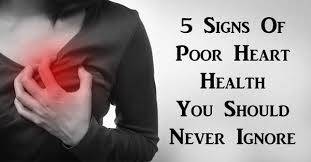5 Hidden Signs of Heart Disease You Should Never Ignore
Heart disease is often called the "silent killer" because its warning signs can be subtle and easily overlooked. Recognizing these hidden symptoms is crucial for early detection and treatment. Let's explore five surprising indicators that might suggest heart problems.
1. Swelling in the Feet, Ankles, or Legs
Swelling, also known as edema, in the lower extremities can indicate that the heart isn't pumping blood effectively. When the heart's function declines, blood can back up in the veins, causing fluid to accumulate in the tissues. This results in noticeable swelling, especially in the feet, ankles, and legs. If you observe persistent swelling in these areas, it's essential to consult a healthcare professional.
2. Shortness of Breath During Routine Activities
Experiencing breathlessness during everyday tasks, such as walking or climbing stairs, may be a sign of heart disease. When the heart struggles to pump blood efficiently, fluid can build up in the lungs, leading to shortness of breath. This symptom, especially if it occurs without significant exertion, should not be ignored.
3. Unexplained Fatigue and Weakness
Feeling unusually tired or weak, even after adequate rest, can be an early sign of heart trouble. The heart's reduced ability to pump blood means muscles and tissues receive less oxygen, leading to persistent fatigue. If you find yourself constantly exhausted without a clear reason, it's worth discussing with your doctor.
4. Dizziness or Lightheadedness
Frequent episodes of dizziness or lightheadedness can indicate heart issues, particularly if accompanied by chest discomfort or shortness of breath. These sensations may result from a drop in blood pressure due to the heart's inability to maintain adequate circulation. Experiencing such symptoms warrants a medical evaluation.
5. Jaw or Neck Pain
Pain or discomfort in the jaw or neck, especially during physical activity, can be a lesser-known sign of heart disease. This type of pain occurs because the nerves in these areas can transmit pain signals from the heart. If you notice unexplained jaw or neck pain, particularly if it worsens with exertion, seek medical advice.
Being aware of these hidden signs can lead to early detection of heart disease, improving the chances of effective treatment and better health outcomes. If you or someone you know experiences any of these symptoms, it's important to consult a healthcare professional promptly. Early intervention can make a significant difference in managing heart health.
Please follow for more.



No comments yet
Be the first to share your thoughts!